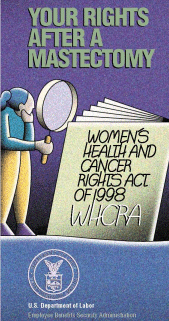 Undergoing any type of surgery is stressful. But the best way to reduce your fears, stresses, and concerns is to do your research and be prepared both before and after surgery. It’s important to understand possible complications during and after surgery, as well as details on the actual procedure.
Undergoing any type of surgery is stressful. But the best way to reduce your fears, stresses, and concerns is to do your research and be prepared both before and after surgery. It’s important to understand possible complications during and after surgery, as well as details on the actual procedure.
For patients who are considering breast reconstruction surgery, it’s important to talk with your doctor about your concerns. Some of the most important questions to ask include . . .
1. Why are you recommending this procedure?
2. What are the risks? How do they compare with the benefits?
3. How do I prepare for surgery?
4. What type of anesthesia will I have?
5. What happens during and right after surgery?
6. Who do I talk to about breast reconstruction?
7. How long will I be in the hospital?
8. Are there possible complications?
9. When can I go back to work and resume normal activities?
10. What are the risks of lymphedema?
Did you find this post helpful? We’d love to hear from you in our comments section.







